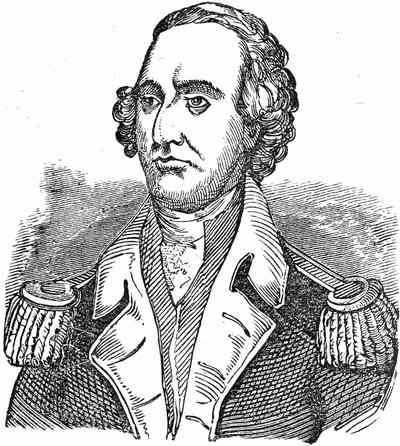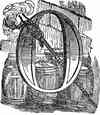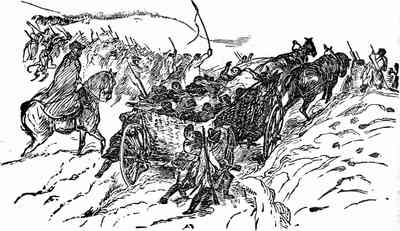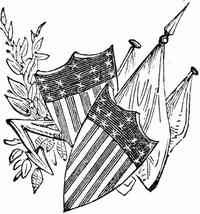Thrilling Incidents In American History
• Preface
Revolutionary War
• Opening Of The Revolution
• The Boston Massacre
• Affair of the Sloop Liberty
• Affair of the Gaspee
• The Tea Riot
• The Boston Port Bill
• The First Continental Congress-Consequent Parliamentary proceedings
• Organization of the Minute-Men
• Patrick Henry-Second Provincial Congress-First Military Enterprise
• Battles of Lexington and Concord
• Battle of Bunker's Hill
• Capture of Ticonderoga
• Second Continental Congress-Washington's Appointment
• Siege of Boston
• Incidents at the Evacuation of Boston
• Burning of Falmouth
• Arnold's Expedition to Quebec
• Siege of Quebec, and Death of Montgomery
• Scenes at Quebec during the Siege
• Expedition against Charleston
• The Declaration of Independence
• The Battle of Long Island
• Washington's Retreat through New Jersey-Capture of General Lee
• Battle of Trenton
• Battle of Princeton
• Capture of General Prescott
• Battle of Brandywine
• Battle of Germantown
• Battle of Red-Bank
• Attack on Fort Mifflin-Retirement of the Army to Valley Forge
• Battle of Bennington
• Murder of Miss M'Crea
• Battle of Stillwater
• Battle of Bemis' Heights, and Retreat of Burgoyne
• Capture of Forts Clinton and Montgomery
• Surrender of Burgoyne
• The Treaty with France
• Attack on Savannah, and Death of Pulaski
• Storming of Stony Point
• General Sullivan's Campaign against the Mohawks
• Tarleton's Quarters
• Battle of Camden, and Death of De Kalb
• Arnold's Treason
• The Loss of the Randolph
• The British Prison-Ships
• Capture of the Serapis
• Putnam's Feat at Horseneck
• Battle of Eutaw Springs
• Wayne's Charge at Green Spring
• Capture of the General Monk
• The Mutinies
• Battle of the Cowpens
• Capture of New London
• Massacre of Wyoming
• Surrender of Cornwallis
War With France
• Capture of L'Insurgente
• The Constellation and Vengeance
War With Tripoli
• Burning of the Philadelphia
• Bombardment of Tripoli
• Loss of the Intrepid
• Expedition of General Eaton
Second War With England
• Battle of Tippecanoe
• Capture of the Guerriere
• Tragical Affair of an Indian Chief
• Battle and Massacre at the River Raisin
• Captain Holmes's Expedition
• Capture of the Caledonia and Detroit
• The Wasp and Frolic
• Gallant Conduct of Lieutenant Allen at the Capture of the Macedonian
• Capture and Destruction of the Java
• Siege of Fort Meigs
• Capture of York, and Death of General Pike
• Defence of Sackett's Harbour
• Defence of Fort Stephenson
• Battle of Lake Erie
• Battle of the Thames
• Gallant Action of Commodore Chauncey under the guns of Kingston Citadel
• The Sacking of Hampton
• Capture of the Peacock
• Massacre at Fort Mimms
• Surrender of Weatherford
• Battle of Niagara
• BattIe of New Orleans
War With Mexico
• Battle of Palo Alto
• Battle of Resaca de la Palma
• Capture of Monterey
• Battle in the Streets of Monterey
• Thrilling Scenes in the Battle of Buena Vista
• Bombardment of Vera Cruz
• Battle of Cerro Gordo
• Battles of Contreras and Churubusco
• Storming of Chapultepec


General Charles Lee.
WASHINGTON'S RETREAT THROUGH JERSEY - CAPTURE OF GENERAL LEE.
 N the 12th of November, General Washington had crossed the North River with part
of his army, and taken a position not far from
Fort Lee, having left upwards of seven thousand men at North Castle, under the
command of General Lee.
At that time, the American army was in a critical and alarming state. It was
composed chiefly of militia, and of men engaged for a short time only. The term
of service of many of them was about to expire; and the republican military
force was on the point of dissolution, in the presence of a well-disciplined,
well-appointed, and victorious enemy.
N the 12th of November, General Washington had crossed the North River with part
of his army, and taken a position not far from
Fort Lee, having left upwards of seven thousand men at North Castle, under the
command of General Lee.
At that time, the American army was in a critical and alarming state. It was
composed chiefly of militia, and of men engaged for a short time only. The term
of service of many of them was about to expire; and the republican military
force was on the point of dissolution, in the presence of a well-disciplined,
well-appointed, and victorious enemy.
In that threatening posture of public affairs, General Washington applied to the state of Massachusetts for four thousand new militia; and General Lee besought the militia under his command to remain for a few days after their term of service was expired. But the application of the commander-in-chief was not promptly answered; and the earnest entreaties of General Lee were almost utterly disregarded.
On the fall of Forts Washington and Lee, General Washington, with his little army, of about three thousand effective men, ill armed, worse clad, and almost without tents, blankets, or utensils for cooking their provisions, took a position behind the Hackensack. His army consisted chiefly of the garrison of Fort Lee, which had been obliged to evacuate that place with so much precipitation as to leave behind them the tents and most of the articles of comfort and accommodation in their possession. But although General Washington made a show of resistance by occupying the line of the Hackensack, yet he was sensible of his inability to dispute the passage of that river; he therefore retreated to Newark. There he remained some days, making the most earnest applications in every

Retreat through New Jersey.
quarter for reinforcements, and pressing General Lee to hasten his march to the southward and join him.
On the advance of Earl Cornwallis, General Washington abandoned Newark, and retreated to Brunswick, a small village on the Raritan. While there, the term of service of a number of his troops expired, and he had the mortification to see them abandon him. From Brunswick the Americans retreated to Trenton. There General Washington received a reinforcement of about two thousand men from Pennsylvania. He had taken the precaution of collecting and guarding all the boats on the Delaware from Philadelphia for seventy miles higher up the river. He sent his sick to Philadelphia, and his heavy artillery and baggage across the Delaware. Having taken these precautionary measures, and being somewhat ecncouraged by the reinforcements which he had received, he halted some time at Trenton, and even began to advance towards Princeton; but being informed that Earl Cornwallis, strongly reinforced, was marching against him, he was obliged to seek refuge behind the river Delaware. On the 8th of December he accomplished the passage at Trenton ferry, the van of the British army making its appearance just as his rear-guard ad crossed.
General Washington was careful to secure all the boats on the south side of the river, and to guard all those places where it was probable that the British army might attempt to pass; so that his feeble army was secured from the danger of an immediate attack. The British troops made demonstrations of an intention to cross the river, and detachments were stationed to oppose them; but the attempt was not seriously made. In this situation the American commander anxiously waited for reinforcements, and sent some parties over the river to observe and annoy the enemy.
While General Washington was retreating through the Jerseys, he earnestly desired General Lee, who had been left in command of the division of the army at North Castle, to hasten his march to the Delaware and join the main army. But that officer, notwithstanding the critical nature of the case, and the pressing orders of his commander, was in no haste to obey. Reluctant to give up his separate command, and subject himself to superior authority, he marched slowly to the southward, at the head of about three thousand men; and his sluggish movemants and unwary conduct proved fatal to his own personal liberty, and excited a lively sensation through out America. He lay carelessly, without a guard, and at some distance from his troops, at Baskingridge, in Morris county, where, on the 13th of December, Colonel Harcourt, who, with a small detachment of light horse, had been sent to observe the movements of that division of the American army, by a gallant act of partisan warfare made him prisoner, and conveyed him rapidly to New York. For some time he was closely confined, and considered not as a prisoner of war, but as a deserter from the British army. The capture of General Lee was regarded as a great misfortune by the Americans; for at that time he enjoyed, in a high degree, the esteem and confidence of the friends of Congress; on the other hand, the British exulted in his captivity, as equal to a signal victory, declaring "that they had taken the American palladium."
